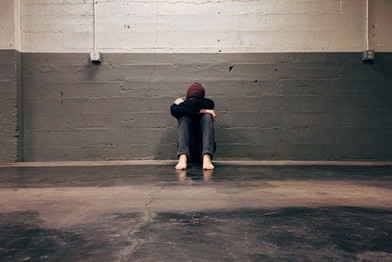When we think of postpartum depression (PPD), the focus often lands squarely on mothers. However, research and lived experiences show that men can also suffer from postpartum depression after the birth of a child. Societal expectations, hormonal changes, and the pressures of fatherhood contribute to this condition, yet it remains a largely overlooked issue. This blog explores why men struggle with postpartum depression, the symptoms to look out for, and how to support fathers during this challenging time.
Breaking the Stigma
Traditional Gender Roles
One significant reason men struggle with postpartum depression is the pressure to conform to traditional gender roles. Society often expects men to be stoic providers and protectors. Emotional vulnerability is frequently seen as a weakness, leaving many men hesitant to express feelings of anxiety, sadness, or inadequacy.
Lack of Awareness
Another challenge is the general lack of awareness surrounding paternal postpartum depression. Unlike maternal PPD, which has been widely studied and discussed, paternal mental health during the postpartum period is rarely acknowledged. This lack of conversation makes it difficult for men to recognize their symptoms and seek help.
Isolation
While mothers often form social networks through parenting groups or healthcare appointments, fathers can feel isolated. The absence of a support system leaves many men struggling to cope with their emotions in silence.
Biological Factors
Hormonal Changes
Although hormonal fluctuations are typically associated with mothers, studies indicate that fathers can experience hormonal changes after the birth of a child. Testosterone levels may decrease, while levels of cortisol, vasopressin, and oxytocin—hormones related to bonding and stress—may fluctuate. These hormonal shifts can contribute to mood disturbances.
Sleep Deprivation
Sleep deprivation is a common experience for new parents and has a profound impact on mental health. Fathers who juggle work responsibilities alongside nighttime caregiving are particularly vulnerable to the effects of sleep deprivation.
Psychological and Emotional Factors
Fear of Inadequacy
Many new fathers grapple with the fear of not living up to their role as a parent. They may worry about their ability to provide financially, support their partner, and bond with the baby. These fears can lead to feelings of anxiety and depression.
Relationship Strain
The arrival of a baby often changes the dynamics of a relationship. Fathers may feel neglected as their partner focuses on the newborn, leading to feelings of jealousy or resentment. Communication breakdowns can exacerbate these issues.
Financial Pressure
The financial burden of raising a child can weigh heavily on fathers, particularly if they perceive themselves as the primary breadwinner. Economic stress can amplify feelings of anxiety and depression.
Societal Barriers to Seeking Help
Stigmatization of Male Mental Health
Men face significant societal pressure to be emotionally resilient. Admitting to postpartum depression may be seen as a failure to live up to traditional masculine ideals. This stigma often prevents men from seeking professional help.
Limited Resources
Mental health resources tailored specifically for fathers are limited. Many support groups and counseling services focus primarily on mothers, leaving fathers without adequate options.
Symptoms of Postpartum Depression in Men
Identifying postpartum depression in fathers can be challenging, as their symptoms may differ from those of mothers. Common signs include:
- Irritability and anger
- Increased use of alcohol or other substances
- Emotional withdrawal from family and friends
- Difficulty concentrating
- Changes in appetite or sleep patterns
- Feelings of hopelessness or worthlessness
- Physical symptoms such as headaches or stomach issues
How to Support Fathers Struggling with Postpartum Depression
Encourage Open Communication
Creating a safe space for fathers to express their feelings without judgment is crucial. Encourage them to talk about their experiences and validate their emotions.
Educate on Paternal Postpartum Depression
Raising awareness about paternal PPD can help fathers recognize their symptoms and understand that they are not alone. Sharing educational resources can be a good starting point.
Promote Self-Care
Encourage fathers to prioritize self-care, including regular exercise, healthy eating, and adequate rest. Even small changes can have a positive impact on mental health.
Seek Professional Help
Mental health professionals can provide valuable support through therapy or counseling. Cognitive-behavioral therapy (CBT) has been shown to be effective in treating depression. If medication is necessary, a healthcare provider can discuss options.
Involve Fathers in Parenting Groups
Participating in parenting groups can help fathers build a support network and share experiences with other dads. Some organizations offer father-specific support groups.
Conclusion
Postpartum depression in fathers is a real and serious issue that deserves greater recognition. By breaking the stigma, raising awareness, and providing adequate support, we can help fathers navigate the challenges of early parenthood and foster healthier family dynamics. Acknowledging and addressing paternal mental health is essential for the well-being of the entire family.

